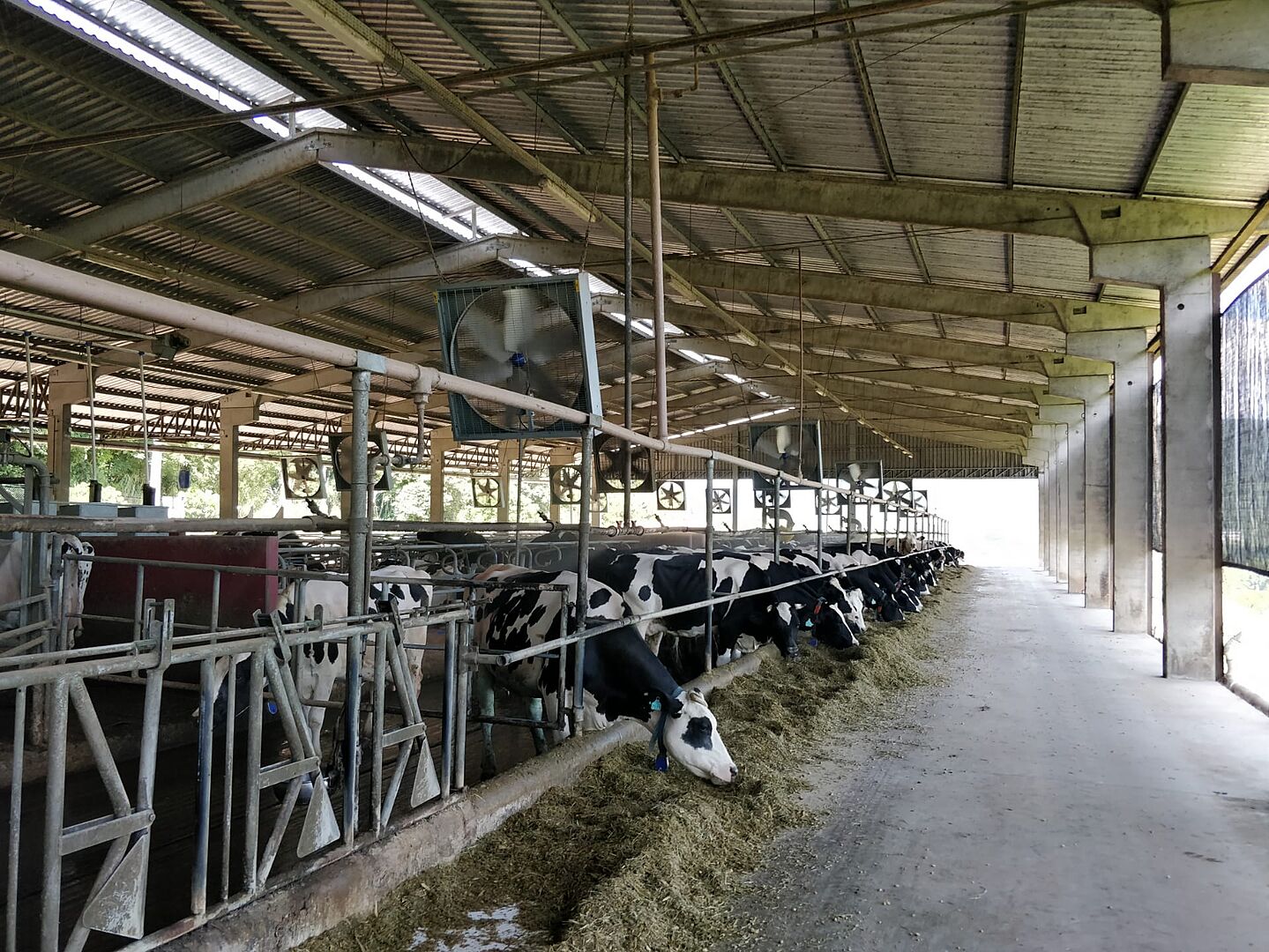Heat stress conditions will profoundly alter the metabolism of ruminants beyond milk or meat production. It is imperative to adapt the ration distributed if the effects of increased THI are to be effectively mitigated. These ration adaptations are multifactorial, we strongly recommend that you get in touch with your nutritionist who has a perfect command of the specific recommendations developed by the CCPA group teams.
Energetic balance
- Heat stress causes a strong increase in the energy needs of the dairy cow during maintenance.
- At the same time, it leads to a significant decrease in intake: care must be taken not to decentralize the energy ration or to increase it if possible.
- Take care not to increase the acidogenic potential of the ration as the animals are all the more sensitive as the THI increases.
- Providing no-fermentable energy: saturated sugars/fats (5%MS max) to limit heat production in the rumen is an interesting possibility.
Protein balance
- Increasing protein levels in the ration will have no beneficial effect on an already balanced ration.
- Excess soluble nitrogen in the ration induces an elimination mechanism (urea) which is very energy intensive. Slower protein sources should be favoured while maintaining a level of ruminal protein essential for rumen function.
- Increasing the proportion of intestinal protein (PDIA) allows the animal to make up for the deficit in proteins of microbial origin linked to lower intake and changes in rumen fermentations.
- The importance of the balance of amino acids (Met/lys) is accentuated.
Fibrousness of the ration
- The presence of fibre is necessary for good rumination and for the balance of rumen flora during hot periods.
- Fiber must be as digestible as possible and in measured quantities so as not to distract the ration.
Mineral balance
- Maintain or even increase the ration’s buffer products because heat stress induces metabolic acidosis in ruminants.
- Provide bicarbonate ions in order to allow the animal to compensate for urine losses and to guarantee blood buffering capacity. (Sodium/potassium bicarbonate)
- Bring electrolytes in sufficient quantity to compensate for losses by perspiration (K, Na …) refer to the CCPA recommendations.
- Ensure a high BACA in order to promote ingestion and cation exchange. BACA > 300 mEq/kg MS



